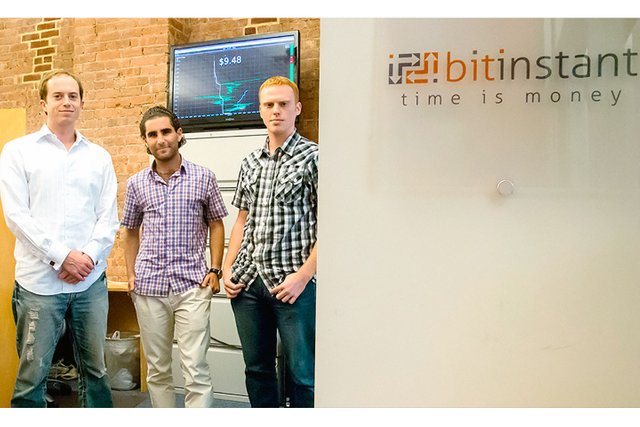Bitcoin’s pseudonymous creator, Satoshi Nakamoto, built a decentralized system that no one would own but anyone could participate in. A constantly updated copy of the ledger recording all Bitcoin transactions—the blockchain—would be stored on the computer of anyone running the software. Although the ledger was open to all, Bitcoin transactions were meant to be anonymous.
Blockchain technology is groundbreaking because it allows transactions to be processed without recourse to a central authority, such as a payments company, government, or bank. Businesses and services can be decentralized, cutting out costly middlemen and removing single points of failure.

This naturally means Bitcoin faces a threat from younger, more nimble rivals, but also drives progress and innovation. Their names are legion: Litecoin. Zcash. Monero. Dash. Dash—a portmanteau of “digital cash”—is one of the biggest. It got its start in January 2014, one of many cryptocurrencies that emerged following Bitcoin’s then-immense rise in price.
Many of these, known as “altcoins,” were used exclusively as vehicles for pump-and-dump schemes. Somebody—often an altcoin’s creator—would pick a coin to pour funds into, and hype would build. Novices would pile in, the price would spike, and the major investors would dump it, sending the price plunging downward. The old Charlie Shrem was not above taking advantage. He claims he turned $50 into $15,000 on one altcoin (but also got badly burned on an altcoin intended to be a national cryptocurrency for Iceland, which shed half of its value in a single day). Dash was one of the most popular altcoins. Originally known as Darkcoin because it promised untraceable transactions, it saw plenty of pumping and dumping. But its creator continued to refine the software and add new features. In March 2015 it rebranded as Dash, so people wouldn’t mistake it for a “single-feature coin,” says Ryan Taylor, who leads its core team. Gradually Dash gained legitimacy. The total value of its currency has grown at triple-digit rates every year. Part of that is due to Bitcoin’s flaws.
To attract customers, Taylor says, a new payment method needs to be faster, easier to use, and more secure than the alternatives. Bitcoin and most other digital currencies fail on all three metrics, he argues. “They’re certainly not faster or easier to use than credit cards,” says Taylor, a former financial services consultant at McKinsey. Dash has functions to address those weaknesses. It offers an “instant send” feature that Taylor says is “as fast as using a credit card.” To protect against fraud or theft, Dash’s next version—due out this year—will include features such as “moderated transactions,” in which funds are released only upon the receipt of goods or services, and “vault accounts,” which give their owner 24 hours to stop an impending withdrawal of funds. The goal is to create a medium of exchange that can be used for everyday commerce. Dash’s clearest innovation, though, may be its governance system. All prospective projects must be submitted for a vote by people who hold at least 1,000 coins. The advantage of such a system, according to Olaf Carlson-Wee, the CEO of Polychain Capital, a hedge fund that invests exclusively in blockchain assets, is that it allows a decentralized network to make decisions rapidly, avoiding the sort of conflict now engulfing Bitcoin, which has little structure and no way to compel anybody to, say, adopt a new version of its software. As Dash took off this spring, Shrem decided to get involved.
He proposed creating a prepaid debit card. You’d load in, say, three Dash coins, which would then be converted into dollars (or euros or whatever). The cardholder could then use the card at any business that accepts a debit card. This could open the floodgates for hundreds of millions of dollars in digital currency to enter the mainstream economy. “People only want to hold Dash if they can easily convert it to something of use,” Taylor agrees. There are several Dash-funded debit cards available, but Shrem’s would be the first that could be used in the U.S. His plan garnered overwhelming support within the Dash universe. “Reputation plays an important role on the network,” Taylor says. “When someone like Charlie comes along, people take it seriously.” Charlie Shrem grew up in Sheepshead Bay, a predominantly Russian and Jewish neighborhood in deep Brooklyn.
His parents are Orthodox Jews, and his father worked for a jewelry retailer, while his mother cared for Shrem and his two sisters. Shy and awkward, Shrem blossomed upon discovering a knack for computers. He taught himself to code and became a presence in online hacker forums. In 2009, while attending Brooklyn College, he cofounded a daily deals site for electronics called Daily Checkout.
He found he loved sales. Shrem has claimed, with characteristic hyperbole, that he was one of the first 10 people in the world to know what Bitcoin was. That is likely exaggerated. By the fall of 2011, however, he was sufficiently established in the Bitcoin community to be credible as the CEO of a startup (albeit one he launched from his parents’ basement). That startup, BitInstant, helped people acquire digital currency and move it between Bitcoin exchanges. Eventually it allowed customers to convert cash into bitcoins at banks such as Wells Fargo (WFC, +0.86%) and Bank of America (BAC, +0.26%), and (via partners including MoneyGram) at 700,000 locations across the U.S., Russia, and Brazil, including Walmart, 7-Eleven, and CVS stores.
Hi! I am a robot. I just upvoted you! I found similar content that readers might be interested in:
http://fortune.com/2017/06/26/bitcoin-blockchain-cryptocurrency-market/
Downvoting a post can decrease pending rewards and make it less visible. Common reasons:
Submit
very informative post - much appreciated - Upvoted and following!
Downvoting a post can decrease pending rewards and make it less visible. Common reasons:
Submit
Thank you! I'll try to give more of these kinds of posts!
Downvoting a post can decrease pending rewards and make it less visible. Common reasons:
Submit